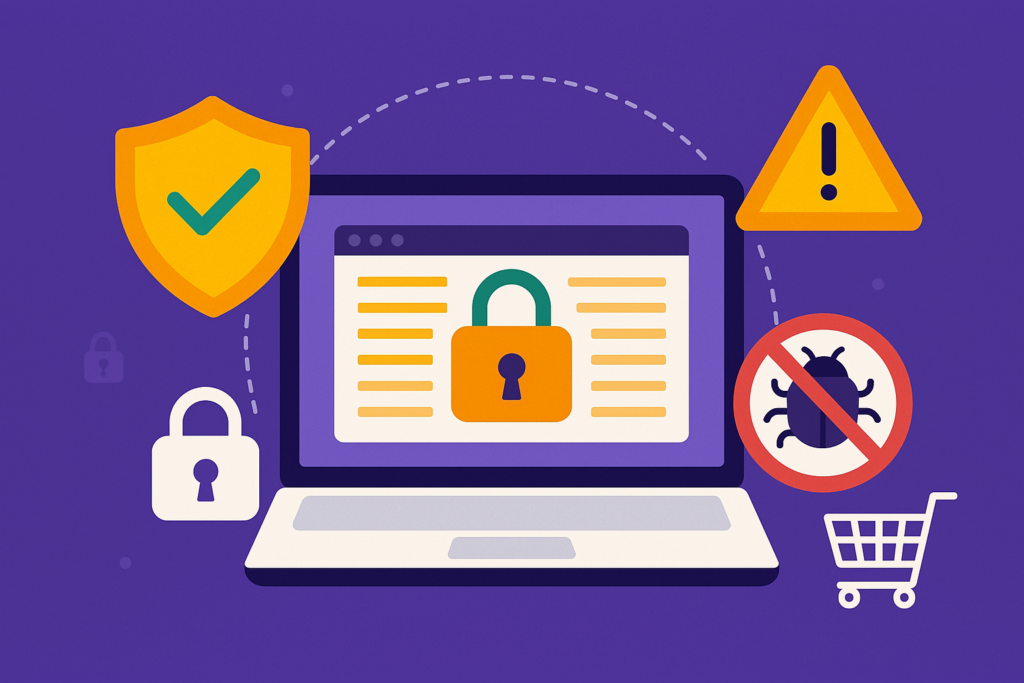
Ecommerce Website Security: How to Safeguard Your Online Store and Earn Customer Trust
Introduction
The ecommerce industry is booming, but with rapid growth comes increased cyber risk. Every online store — from small businesses to large retailers — faces daily threats that can compromise sensitive customer data, financial information, and even the reputation of the brand.
Investing in ecommerce website security is no longer optional — it’s a critical part of running a successful online business.
In this guide, we’ll explore why ecommerce website security is essential, the most common threats, and the best practices to protect your online store.

Why Ecommerce Website Security Should Be Your Priority
Customers trust your brand when they enter their personal information. If your website suffers a security breach, it’s not just about financial loss — it’s about losing credibility, trust, and future sales.
Moreover, global data privacy regulations like GDPR or PCI-DSS require ecommerce businesses to meet strict security standards. Ignoring them can lead to legal penalties.
The Most Common Ecommerce Security Threats
- Credit Card FraudHackers can intercept or steal payment data from poorly secured websites.
- SQL InjectionA method used to manipulate a website’s database and access confidential data.
- Cross-Site Scripting (XSS)Attackers inject malicious code into your site that targets your users.
- Malware InfectionsHackers may install malware to steal customer information or redirect users to fraudulent sites.
- Phishing AttacksFake pages or emails that mimic your store to trick customers into revealing personal data.
Best Practices for Ecommerce Website Security
1. Choose a Secure Ecommerce Platform
Platforms like WooCommerce, Shopify, or Magento offer built-in security features — but they must be configured correctly.
2. Use an SSL Certificate
This encrypts communication between your website and customers, ensuring their data stays private.
3. Regularly Update Software
Outdated plugins, themes, and CMS systems are common entry points for hackers.
4. Implement Two-Factor Authentication (2FA)
Adds an extra layer of protection for admin logins.
5. Backup Your Website Frequently
In case of an attack, having a recent backup minimizes downtime.
6. Perform Vulnerability Scans
Running periodic security scans is essential to detect weaknesses before attackers do.
Final Thought: Protect Your Store, Protect Your Business
Online security is not just a technical issue — it’s a customer experience issue. Shoppers will feel more confident buying from a store that takes security seriously.
If you want to ensure your ecommerce site is protected against vulnerabilities, we can help.
We offer professional vulnerability scanning services for ecommerce and WordPress websites. Get a detailed report of your site’s weaknesses and take action before hackers do.
Contact us today to secure your online store.
If you want to explore other articles similar to Ecommerce Website Security: How to Safeguard Your Online Store and Earn Customer Trust you can visit the Web Vulnerabilities.






Leave a Reply